- Home
- Conn Iggulden
Genghis: Birth of an Empire Page 12
Genghis: Birth of an Empire Read online
Page 12
“Is Borte here?” he said.
Sholoi narrowed his eyes at the change in manner in the boy, no doubt because of the warrior who stood so grimly at his side. Sholoi raised his head stubbornly.
“Not yet, boy. I thought she might be with you. Your brother tried the same with the girl they’d given him.”
Temujin hesitated, losing his momentum. “What?”
“He took his girl early, like a couple of goats rutting. Didn’t he say? If you’ve done the same, I’ll cut your hands off, boy, and don’t think I’m worried by your daddy’s man, either. I’ve killed better with my hands alone. An axe will do you both.”
Temujin heard the slide of steel as Basan drew his sword. Before a blow could be struck, Temujin laid a hand on the warrior’s arm, stopping him with a touch.
“I have not harmed her. She stopped me fighting Koke. That is all.”
Sholoi frowned. “I told her not to leave the tent, boy. That’s what matters.”
Temujin stepped closer to the old man. “I’ve learned more tonight than I wanted to know. Whatever the truth of it, I am not my brother. I will return for your daughter when the moon’s blood is on her. I will take her for my wife. Until then, you will not lay a hand on her again. You will make an enemy of me if she takes a single bruise from you, old man. You do not want me as an enemy. If you give me cause, the Olkhun’ut will suffer.”
Sholoi listened with a sour expression on his face, his mouth working. Temujin waited patiently for him to think it through.
“She needs a strong man, boy, to control her.”
“Remember that,” Temujin said.
Sholoi nodded, watching as the two Wolves walked away, the sight of the drawn sword scattering Olkhun’ut children before them. Sholoi hefted the axe onto his shoulder and hitched up his leggings, sniffing.
“I know you’re here, girl, creeping around,” he said to the empty air. There was no response, but the silence became strained and he grinned to himself, revealing black gums. “I think you’ve found yourself a good one, if he survives. Mind you, I wouldn’t take a wager on those odds.”
CHAPTER 10
TEMUJIN HEARD THE HORNS of the Wolves sound as he and Basan rode into view with the setting sun behind them. A dozen warriors galloped in perfect formation to intercept him, a spearhead of seasoned warriors well able to deal with a raiding party. He could not help comparing the instant response with the panic of the Olkhun’ut he’d left behind. It was hard to draw his mount back to a walk, but only a fool would risk being killed before he had been recognized.
He glanced at Basan, seeing a new tension there, overlaying the exhaustion. Temujin had pushed him hard to cover the distance home in only two days. Both of them had gone without sleep, surviving on water and drafts of sour yoghurt. Their time together had not begun a friendship, and as they came back into familiar territory, Temujin had sensed a growing distance between them. The warrior had been reluctant to speak, and his manner worried Temujin more than he cared to admit. It occurred to him that the arban of galloping warriors could now be enemies. He had no way of telling, and all he could do was sit tall and straight in the saddle, as his father would have wanted, while they came on.
When the warriors were within hailing distance, Basan raised his right arm, showing he did not carry a blade. Temujin recognized Eeluk amongst them and saw instantly how the others deferred to his father’s bondsman. It was he who gave the signal to halt, and something about his confidence brought Temujin close to humiliating tears. He had come home, but everything had changed. He refused to weep in front of them all, but his eyes shone.
Eeluk laid a claiming hand on Temujin’s reins. The others fell in around them and they began to trot as one, Temujin’s mount matching the pace without a command from him. It was a small thing, but Temujin felt like yanking the reins away in childish anger. He did not want to be led back to his father’s tribe like a small boy, but his wits seemed to have deserted him.
“Your father still lives,” Eeluk said. “His wound was poisoned and he has been delirious for many days.”
“He is awake, then?” Temujin said, hardly daring to hope.
Eeluk shrugged. “At times, he cries out and struggles against enemies only he can see. He is a strong man, but he takes no food and the flesh has melted off him like wax. You should prepare yourself. I do not believe he will live much longer.”
Temujin bowed his head to his chest, overcome. Eeluk looked away rather than shame him at his moment of weakness. Without warning, Temujin reached out and tugged his reins away from Eeluk’s grip.
“Who is responsible? Has he named them?”
“Not yet, though your mother has asked him whenever he wakes. He does not know her.”
Eeluk sighed to himself and Temujin saw his own strain mirrored in the man. The Wolves would be stunned and fearful with Yesugei raving and close to death. They would be looking for a strong leader.
“What about my brother Bekter?” Temujin said.
Eeluk frowned, perhaps guessing the path of Temujin’s thoughts.
“He has ridden out with the warriors to search the plains.” He hesitated then, as if deciding how much he should share with the boy. “You should not hope to find your father’s enemies now. Those who survived will have scattered days ago. They will not wait for us to find them.”
His face was a mask, but Temujin sensed some hidden anger in him. Perhaps he did not like the thought of Bekter’s influence on the warriors. The search had to be at least attempted and Bekter was an obvious choice, but Eeluk would not want new loyalties being forged away from him. Temujin thought he could read his father’s bondsman well enough, despite his attempts to hide his private self. A man would have to be a fool not to think of the succession at such a time. Temujin was almost certainly too young and Bekter was on the edge of manhood. With Eeluk’s support, either could rule the Wolves, but the alternative was obvious and chilling. Temujin forced a smile as he faced a man who was more of a threat than any of the Olkhun’ut he had left behind.
“You have loved my father, even as I have, Eeluk. What would he want for the Wolves if he dies? Would he want you to lead them?”
Eeluk stiffened as if he had been struck, turning a murderous expression on the boy who rode at his side. Temujin did not flinch. He felt almost light-headed, but in that moment, he did not care if Eeluk killed him. No matter what the future held, he found he could return the gaze without a trace of fear.
“I have been loyal all my life,” Eeluk said, “but your father’s day has come and gone. Our enemies will be watching us for weakness as word spreads. The Tartars will come in the winter to raid our herds, perhaps even the Olkhun’ut, or the Kerait, just to see if we can still defend what is ours.” He took a white-knuckled grip on his reins and turned away from Temujin, unable to go on with the pale yellow eyes watching him.
“You know what he would have wanted, Eeluk. You know what you must do.”
“No. No, I do not know, boy. I do know what you are thinking, and I tell you now, you are too young to lead the families.”
Temujin swallowed bitterness and pride in a hard knot.
“Bekter, then. Do not betray our father, Eeluk. He treated you like a brother all his life. Honor him now by helping his son.”
To Temujin’s astonishment, Eeluk kicked his heels in and rode ahead of the group, his face flushed and furious. Temujin did not dare look at the men around him. He did not want to see their expressions and know his world had crumbled. He did not see the questioning glances they shared, nor their sorrow.
The camp of the Wolves was still and quiet as Temujin dismounted by his father’s ger and took a deep breath. He felt as if he had been away for years. The last time he had stood on that spot, his father had been vital and strong, a certainty in all their lives. It was just not possible to think that world had gone and could not be recalled.
He stood stiffly in the open, looking out over the gers of the families. He could have nam
ed every man, woman, and child with just a glance at the design of their door. They were his people and he had always known his place amongst them. Uncertainty was a new emotion for him, as if there were a great hole in his chest. He found he had to summon all his courage just to enter the ger. He might have stood there even longer if he had not seen the people beginning to gather as the sun’s rays faded. He could not bear their pity, and with a grimace, he ducked through the low door and closed it against their staring faces.
The night felt had not yet been placed over the smoke hole above his head, but the ger was stifling with heat and a smell that made him want to gag. He saw his mother’s paleness when she turned to him, and his defenses crumbled as he rushed to her and fell into her embrace. Tears came beyond his control and she rocked him in silence as he gazed on his father’s withered body.
Yesugei’s flesh shuddered like a horse twitching at flies. His stomach was bound in crusted bandages, stiff as reeds with old fluids. Temujin saw a line of pus and blood move like a worm across the skin and into the blankets. His father’s hair had been combed and oiled, but it seemed thin and there was more gray than he remembered in the wisps that reached down to his cheekbones. Temujin saw the ribs were starkly outlined. The face was sunken and dark in hollows, a death mask for the man he had known.
“You should speak to him, Temujin,” his mother said. As he raised his head to respond, he saw her eyes were as red as his own. “He has been calling your name and I did not know if you would come in time.”
He nodded, wiping a silvery trail of mucus from his nose onto his sleeve as he looked at the one man he had thought would live forever. The fevers had burnt the muscle off his bones and Temujin could hardly believe it was the same powerful warrior who had ridden so confidently into the camp of the Olkhun’ut. He stared for a long time, unable to speak. He hardly noticed his mother wet a cloth in a bucket of cold water and press it into his hand. She guided his fingers to his father’s face and, together, they wiped the eyes and lips. Temujin breathed shallowly, struggling against revulsion. The smell of sick flesh was appalling, but his mother showed no distaste and he tried to be strong for her.
Yesugei shifted under the touch and opened his eyes, looking directly at them.
“It is Temujin, husband; he has come home safe,” Hoelun said gently.
The eyes remained blank and Temujin felt fresh tears starting.
“I don’t want you to die,” he said to his father, beginning to sob in spasms. “I don’t know what to do.”
The khan of the Wolves took in a sharp breath, so that his ribs stood out like a cage. Temujin leaned over him and pressed his hand into his father’s. The skin was impossibly hot and dry, but he did not let go. He saw his father’s mouth move and dropped his head to hear.
“I am home, Father,” he said. The grip tightened enough to hurt. Temujin brought his other hand over to hold his father’s fingers, and for a moment their eyes met and he thought he saw recognition.
“The Tartars,” Yesugei whispered. His throat seemed to close on the words, and the pent-up air released in a great sigh that ended in a dry clicking. Temujin waited for the next breath, and when it did not come, he realized the hand he held had fallen limp. He held it even harder in a rush of despair, aching to hear another breath.
“Don’t leave us here,” he begged, but he knew he could not be heard. Hoelun made a choking sound behind him, but he could not tear himself away from the sunken face of the man he adored. Had he told him? He could not remember saying the words and he had a sudden fear that his father would go to the spirits without knowing how much he had meant to his sons.
“Everything I am comes from you,” he whispered. “I am your son and nothing else. Can you hear me?”
He felt his mother’s hands on his own.
“He waited for you, Temujin. He has gone now,” she said.
He could not look at her.
“Do you think he knew how much I loved him?” he said.
She smiled through her tears and for a moment she looked as pretty as she must have been when she was young.
“He knew. He was so proud of you, he used to think his heart would burst with it. He used to look at me whenever you rode, or fought with your brothers, or argued with them. I could see it in his smile then. He did not want to spoil you, but the sky father gave him the sons he wanted and you were his pride, his private joy. He knew.”
It was too much for Temujin to hear and he wept unashamedly.
“We must tell the families that he is gone at last,” Hoelun said.
“What then?” Temujin replied, wiping his tears. “Eeluk will not support me to lead the Wolves. Will Bekter be khan?” He searched her face for some reassurance, but found only exhaustion and grief returning to cloud her eyes.
“I do not know what will happen, Temujin. If your father had survived a few more years, it would not matter, but now? There is no good time to die, but this…”
She began to weep and Temujin found himself drawing her head against his shoulder. He could not have imagined giving her comfort, but it seemed to come naturally and somehow it strengthened him for whatever was to come. He felt his youth as a weakness, but with his father’s spirit close, he knew he had to find the courage to face the families. His gaze flickered around the ger.
“Where is the eagle I brought for him?”
His mother shook her head. “I could not care for it. Eeluk took it to another family.”
Temujin struggled with a rising hatred for the man his father had trusted in all things. He drew away from his mother and Hoelun rose and looked down at the body of Yesugei. As Temujin watched, she leaned over her husband and kissed him gently on his open mouth. She seemed to shudder at the contact, her whole body quivering. With shaking fingers, she closed his eyes, then pulled a blanket over his wound. The air was sluggish with heat and death, but Temujin found the smell no longer troubled him. He breathed deeply, filling his lungs with his father’s essence as he too rose to his feet. He splashed water from the bucket onto his face and then rubbed it away with a scrap of clean cloth.
“I will go out and tell them,” he said.
His mother nodded, her eyes still fixed on a distant past as he walked to the small door and ducked out into the sharp air of the night.
The women of the families raised wailing voices to the sky father, so that he would hear a great man had passed from the plains. The sons of Yesugei gathered to pay their last respects to their father. When dawn came, they would wrap him in a white cloth and take him to a high hill, leaving his naked flesh to be taken into the hawks and vultures that were dear to the spirits. The arms that had taught them to draw a bow, the strong face, all of him would be torn into a thousand scraps to fly in hosts of birds under the sky father’s gaze. He would no longer be tied to the earth as they were.
As the night wound on, the warriors met in clusters, moving from ger to ger until all the families had spoken. Temujin did not take part in the process, though he wished Bekter were there to see the sky burial and the recitals. As much as he disliked his brother, he knew it would hurt him to have missed the stories and tales told of Yesugei’s life.
No one slept. As the moon rose, a great fire was built in the center of the encampment and old Chagatai the storyteller waited while they gathered, a skin of black airag ready against the cold. Only the scouting party and the lookouts remained on the hills. Every other man, woman and child came to hear and weep openly, giving Yesugei honor. They all knew that a tear shed into the ground would one day become part of the rivers that quenched the thirst of the herds and the families of all the tribes. There was no shame in weeping for a khan who had kept them safe through hard winters and made the Wolves a force on the plains.
Temujin sat alone at first, though many came to touch his shoulder and say a few quiet words of respect. Temuge was red-faced from crying, but he came with Kachiun and sat beside their brother, sharing their grief without words. Khasar too came to hear Chaga
tai and he was pale and wan as he embraced Temujin. The last to arrive was Hoelun, with her daughter Temulun asleep in the folds of her robe. She hugged her boys one after the other, then stared into the flames as if lost.
When the tribe were all there, Chagatai cleared his throat and spat into the roaring fire at his back.
“I knew the Wolf when he was a little boy and his sons and daughter were only dreams of the sky father. He was not always the man who led the families. When he was young, he crept into my father’s ger and stole a comb of honey wrapped in cloth. He buried the cloth, but he had a dog in those days, a hound of yellow and black. The animal dug up the cloth and brought it to him while he was in the middle of denying he had even known the honey was there. He did not sit for days afterwards!” Chagatai paused as the warriors smiled. “As a man, he led war parties after only twelve summers, raiding the Tartars again and again for ponies and sheep. When Eeluk wanted to take a bride, it was Yesugei who raided ponies to give to her father, bringing in three red mares and a dozen cattle from a single night. He had the blood of two men bright on his sword, but even then there were few who could match him with a blade or a bow. He was a scourge to that tribe, and when he was khan, they learned to fear Yesugei and the men who rode with him.”
Chagatai took a deep draft of the airag, smacking his lips.
“When his father was sky-buried, Yesugei gathered all the warriors and took them out for many days, making them live on just a few handfuls of food and barely enough water to wet the throat. All those who went on that trip came back with fire in their bellies and loyalty to him in their hearts. He gave them their pride and the Wolves grew strong and fat on mutton and milk.”

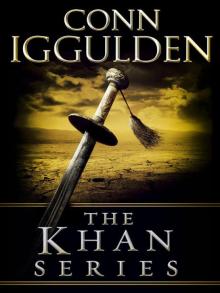 The Khan Series 5-Book Bundle
The Khan Series 5-Book Bundle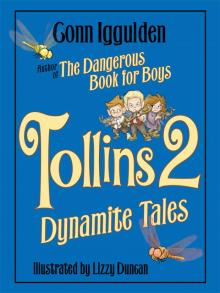 Tollins 2: Dynamite Tales
Tollins 2: Dynamite Tales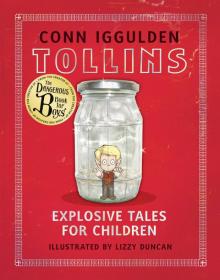 Tollins: Explosive Tales for Children
Tollins: Explosive Tales for Children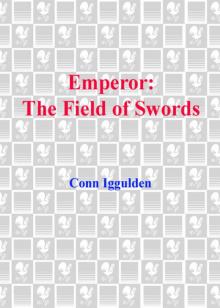 The Field of Swords
The Field of Swords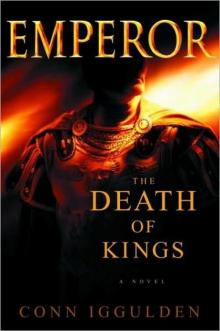 The Death of Kings
The Death of Kings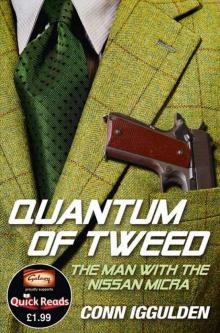 Quantum of Tweed: The Man With the Nissan Micra
Quantum of Tweed: The Man With the Nissan Micra Bones of the Hills
Bones of the Hills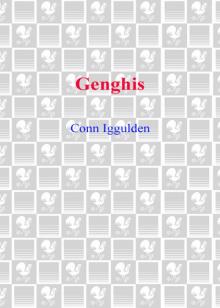 Genghis: Birth of an Empire
Genghis: Birth of an Empire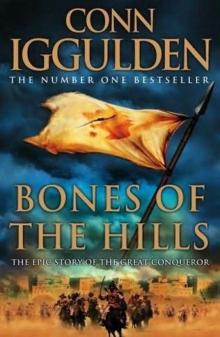 The Gates of Rome
The Gates of Rome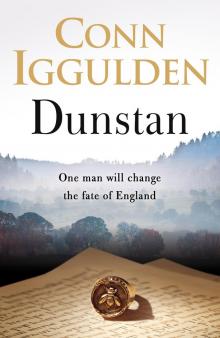 Dunstan
Dunstan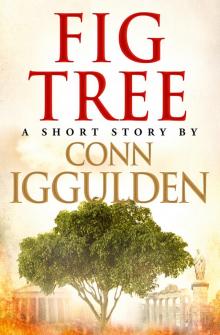 Fig Tree
Fig Tree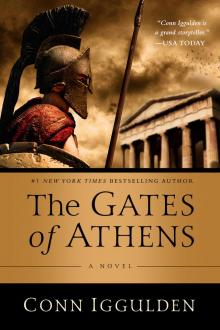 The Gates of Athens
The Gates of Athens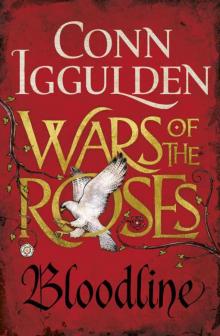 Stormbird
Stormbird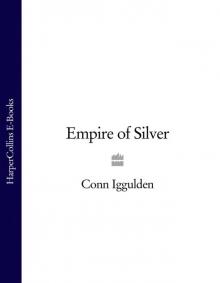 Khan: Empire of Silver
Khan: Empire of Silver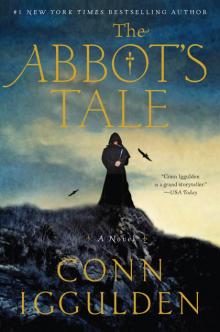 The Abbot's Tale
The Abbot's Tale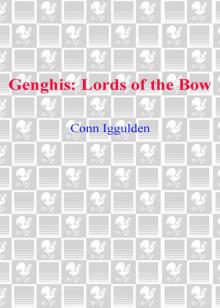 Gengis: Lords of the Bow
Gengis: Lords of the Bow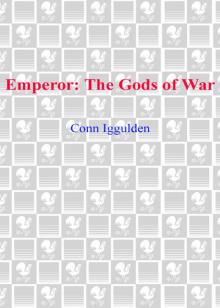 The Gods of War
The Gods of War Blackwater
Blackwater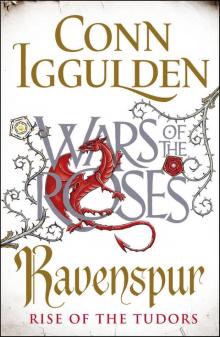 Ravenspur: Rise of the Tudors
Ravenspur: Rise of the Tudors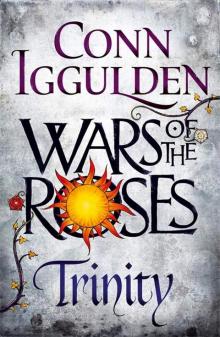 Wars of the Roses: Trinity (War of the Roses Book 2)
Wars of the Roses: Trinity (War of the Roses Book 2)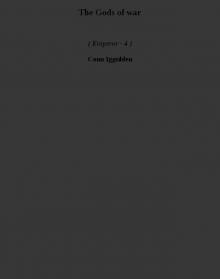 The Gods of war e-4
The Gods of war e-4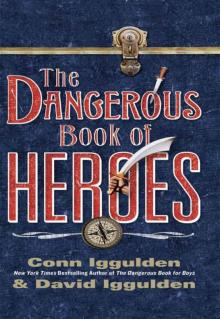 The Dangerous Book of Heroes
The Dangerous Book of Heroes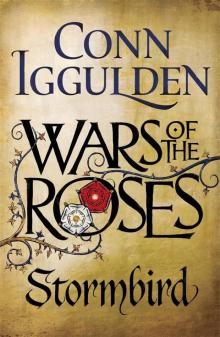 Stormbird wotr-1
Stormbird wotr-1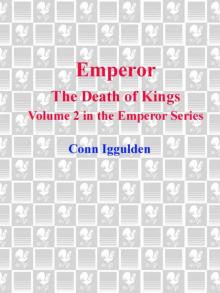 Emperor: The Death of Kings
Emperor: The Death of Kings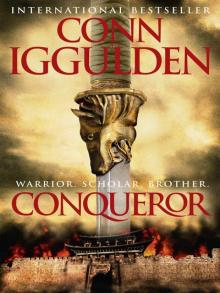 Conqueror (2011) c-5
Conqueror (2011) c-5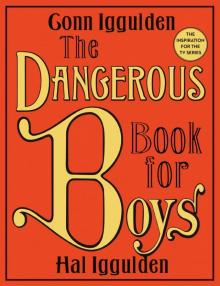 The Dangerous Book for Boys
The Dangerous Book for Boys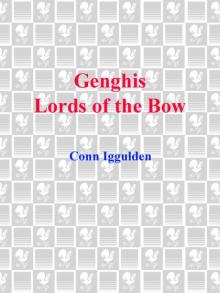 Genghis Lords of the Bow
Genghis Lords of the Bow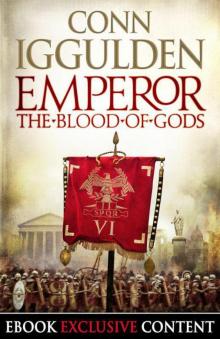 Emperor: The Blood of Gods (Special Edition) (Emperor Series, Book 5)
Emperor: The Blood of Gods (Special Edition) (Emperor Series, Book 5)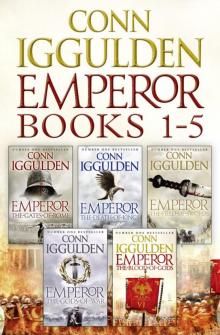 The Emperor Series: Books 1-5
The Emperor Series: Books 1-5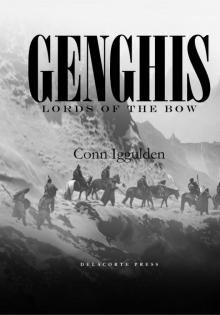 Lords of the Bow c-2
Lords of the Bow c-2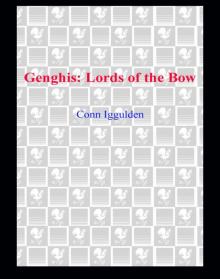 Lords of the Bow
Lords of the Bow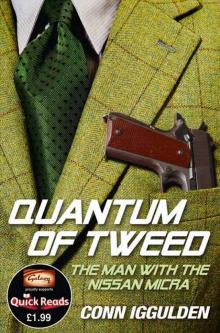 Quantum of Tweed
Quantum of Tweed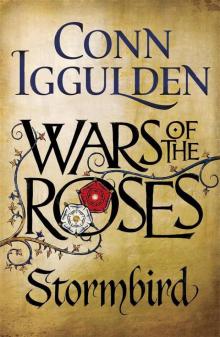 Wars of the Roses 01 - Stormbird
Wars of the Roses 01 - Stormbird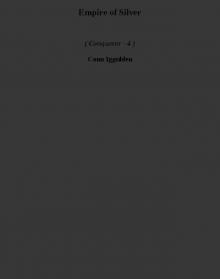 Empire of Silver c-4
Empire of Silver c-4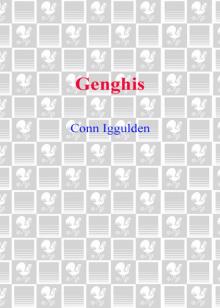 Birth of an Empire
Birth of an Empire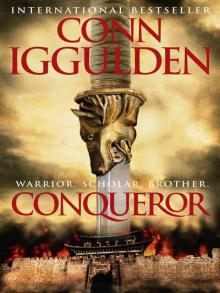 Conqueror (2011)
Conqueror (2011)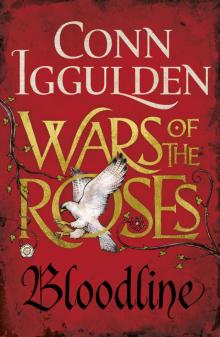 Wars of the Roses: Bloodline: Book 3 (The Wars of the Roses)
Wars of the Roses: Bloodline: Book 3 (The Wars of the Roses) Bones Of the Hills c-3
Bones Of the Hills c-3 Empire of Silver
Empire of Silver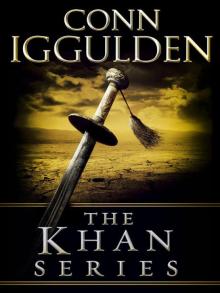 The Khan Series 5-Book Bundle: Genghis: Birth of an Empire, Genghis: Bones of the Hills, Genghis: Lords of the Bow, Khan: Empire of Silver, Conqueror
The Khan Series 5-Book Bundle: Genghis: Birth of an Empire, Genghis: Bones of the Hills, Genghis: Lords of the Bow, Khan: Empire of Silver, Conqueror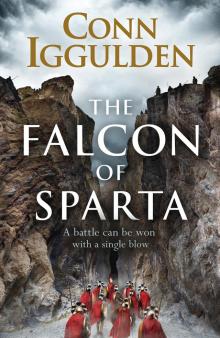 The Falcon of Sparta
The Falcon of Sparta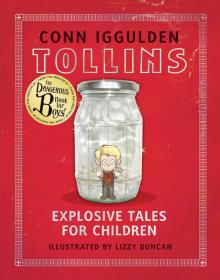 Explosive Tales for Children
Explosive Tales for Children